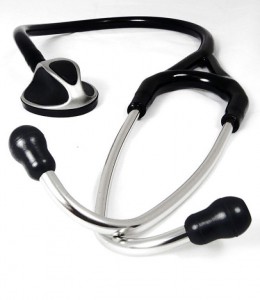
The spirit of the country doctor lives.
I had a great day yesterday. I spent it at an event at the University of Minnesota put on by the American Association of Physicians and Surgeons ( AAPS).
The event was marvelous. In a world where most medicine is focused on money, statistics, politics, and bureaucracy, I listened to doctors describe how they got fed up with the pressure to withhold care and treat patients like cattle. They told how they lost medical privacy, because insurance companies and US government had access to their medical records. They described endless paperwork, and fear of prosecution for mistakes in choosing the wrong code from 140,000 possibilities. They chafed at being coerced into medically unethical practices. They said it can be illegal for a doctor who accepts medicare to provide free care to one of his patients.
Each of these doctors described how they hit the wall, made a decision, and took the leap from the secure life of an employed doctor to being a medical renegade – a third-party-free, direct-pay physician. Every one of them accepted the risk and cost. It wasn’t easy. They had to learn how to get out from under the contracts they had signed with third party payers, Blue Cross, Humana, Medicare – all of them. They had to give up their old practices, and sometimes spend years finding a whole new group of patients. Freed of the burden of insurance paperwork, they lowered their fees and sought out patients willing to pay them directly, on the spot in a world where most people expect health care to be effectively “free”. Ironically, they also regained the ability to do charity care, often prohibited by third-party contracts.
Their stories were all different, but each of them discovered the same things. For the patients – customers – paying for a valuable service is much easier when the doctor is working for you. For the doctors, they regained the freedom to practice medicine according to their Hippocratic oaths, and make sure that they focused on working for their patients. They regained the satisfaction of knowing they were doing the right thing for every patient, rich or poor, rather than what the insurance company allowed.
I was struck by the variety of approaches. One of the doctors gave a $5 discount if you wear spurs to the office visit, and free care to those with cancer. Small town doctors who are good to their neighbors end up with a lot of devoted friends.
I have written about the PPACA as it has progressed toward its implementation. As these doctors found, control from a central authority seldom works very well. The PPACA is central control on steroids. I have worried about what will happen to our medical sector when the law forces every doctor to follow the “best practices” to save money, give up their medical records to a national data hub, andpractice medicine by statistics rather than individual needs. As I have described, I expect the PPACA to be a Train Wreck, but it is already doing enormous damage. How will we get our medical care, when the government has made the health care industry totally dysfunctional?
I saw the future yesterday. The answer is not the bureaucrat, but the human spirit. No one in that room yesterday was a high official with bureaucratic power. They were all people like me, who just wanted to be left alone to practice their professions according to the needs of their customers. They wanted their freedom, and they worked out a way to get it back.
The PPACA may well destroy health care system we have, but yesterday I was reminded of an important fact. History is not made by bureaucrats who squash the last sparks of innovation. It is made by revolutionaries who turn disasters into opportunity.
In my opinion, the biggest problems with US health care is its dependence on third party payers. Neither patients nor doctors think we can live without them, and the PPACA is racing toward us to seize control of all things medical by controlling medical insurance. The train wreck will be ugly.
Nevertheless, there are still people with needs, and there are still doctors who want to meet those needs. The officials, whose mission is to get between patients and doctors are certainly obstacles, but in the end, they don’t win. ThePPACA is not new. It is yet another bureaucratic turnstile in a long line of government obstacles. I’m betting on the revolutionaries.
Those doctors I met yesterday are our quiet revolutionaries. Their creativity, tenacity, and drive, will give them back their professional and medical freedom, and in the process, give us back ours. The US government is against them, but in the end, the ones meeting needs will trump the ones getting in the way.

